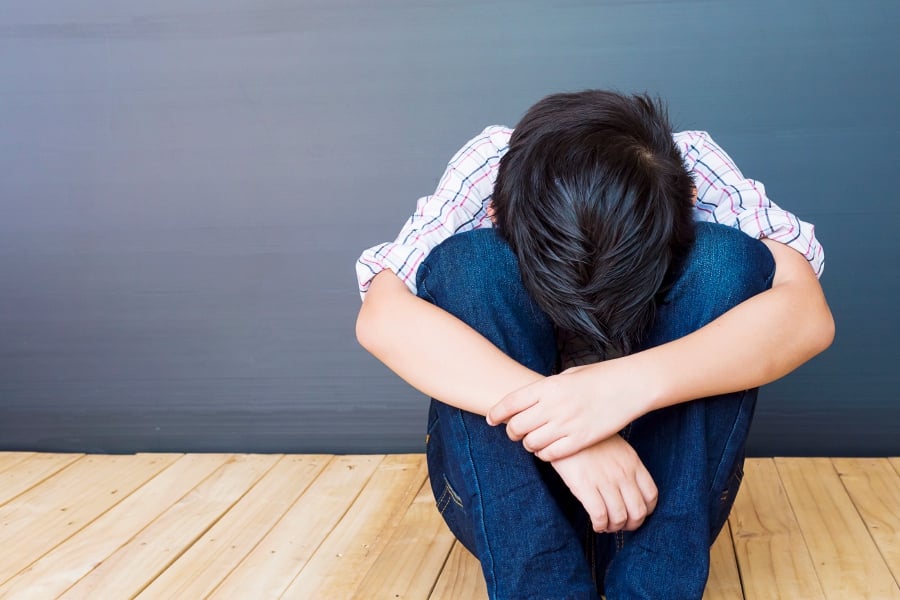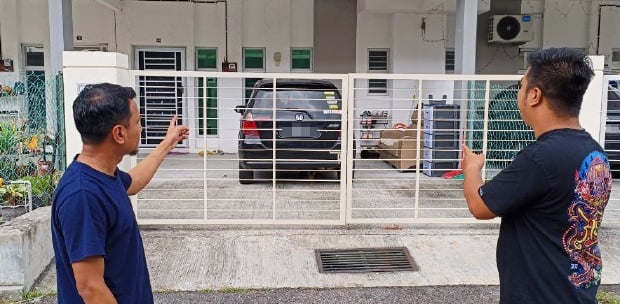IT is difficult to weave a life when you are a victim of child abuse. A chance meeting with such a victim, of whom I wrote a news piece when I was a reporter back in the 1980s, was an eye-opener.
Samad (not his real name), a happily married man with four children, told me it was difficult to lead a peaceful life because of the physical and emotional abuse he had endured.
As a child, Samad experienced constant abuse by his father. He recalled an incident where his father beat him with a rubber hose while tied to a tree.
The neighbours at San Peng flats (Sri Selangor Flats) near Jalan Hang Tuah had to call the police to release Samad and had his old man arrested.
Samad, in his 50s, survived the ordeal but he now fears for one of his children. His 18-year-old son has been exhibiting symptoms of extreme violence from time to time.
Samad was not like his late father but this son was. "My son once became so violent that he did not remember what he did to a neighbour's son. I could see my late father's temperament in him."
A few weeks later, I met Samad and his wife and asked whether he had, in any way, mistreated the children. His wife vouched for her husband, saying he was a responsible person with a kind soul.
"My son somehow 'inherited' the violent streak from my father," he told me as he wondered how a stable, happy family could have produced a violent person.
I then advised him to take his son to see a psychiatrist, to which his son hesitantly agreed. It turned out that Samad's son suffered from a condition called inherited or generational trauma.
The psychiatrist revealed that trauma can pass from one generation to the next.
In my readings, I found that trauma can leave a chemical mark on a person's genes, which may then be passed down to future generations.
This mark does not cause a genetic mutation, but it alters the mechanism by which the gene is expressed. This alteration is not genetic, but epigenetic.
Epigenetics is the study of how our behaviour and environment can cause changes that affect the way our genes work.
Unlike genetic changes, epigenetic changes are reversible and do not change our Deoxyribonucleic acid (DNA) sequence, but they can change how our body reads a DNA sequence.
Dr Chris Mason, a professor in Computational Biology and Medicine at the Weill Cornell Medicine, a medical school in the United States, said: "Epigenetics, in simplified terms, is the study of the biological control mechanisms of DNA — the light switches that turn genes on or off. In essence, epigenetics control how or why your genes are expressed."
He said what would have seemed preposterous 20 years ago has become a fast-emerging field of study.
Today, the idea that a person's experience could alter their biology, and behaviour of their children and grandchildren, has gained serious traction. Studies have shown immense stress can trigger metabolic changes in subsequent generations.
The number of child abuse cases in Malaysia exhibited an upward trend over the years.
Although latest statistics are not readily available, the Social Welfare Department revealed last year that more than 2,000 child abuse cases were reported each year.
The number of cases in 2019 stood at 6,061. As many as 2,040 child abuse cases were reported in the first four months of 2021 at the height of the pandemic.
It appears that many child abuse cases go unreported due to many contributing factors, such as shame or fear. It has become a societal disease, so to speak.
Biological and non-biological parents are the main culprits of most child abuse cases. An inherited trauma can reappear in the victims as well as their future generations.
I believe punishment and education on good parenting on the perpetrators are just not enough. They should be examined to see whether they inherited such trauma.
The victims, on the other hand, must be counselled from time to time to see whether they showed any dark tendencies.
It is important for us to break this generational trauma. Families need to build resilience through open and loving communication between generations.
Healing happens when family members speak up and work through any pain or abuse from the past.
Children must be given adequate protection and live in a healthy and conducive environment so that they can become better parents to their children.
The writer, a former NST journalist, is a film scriptwriter whose penchant is finding new food haunts






